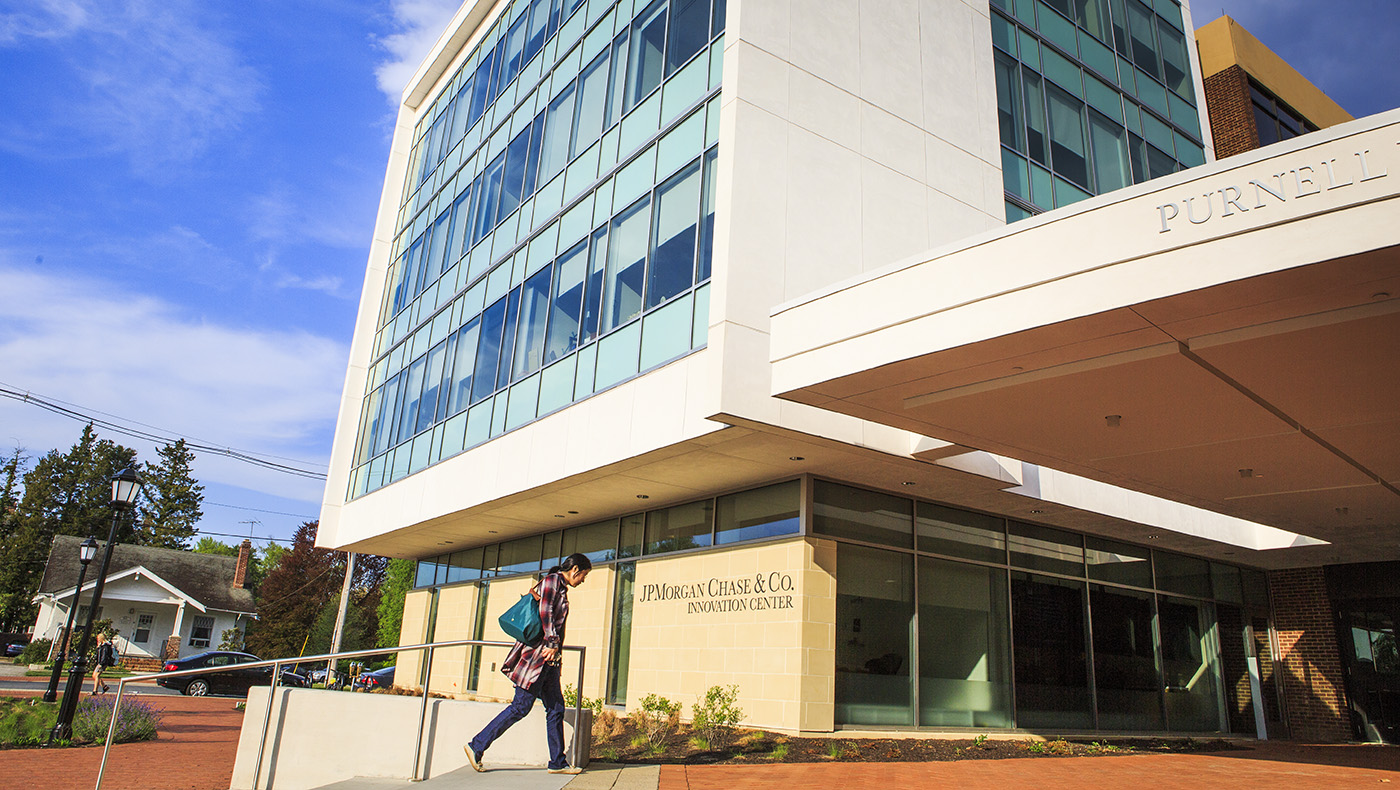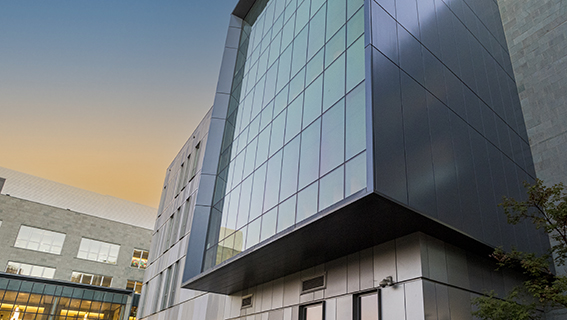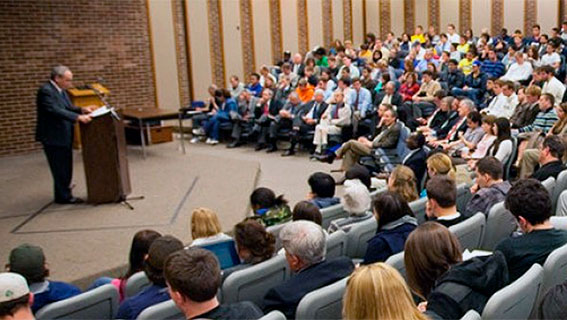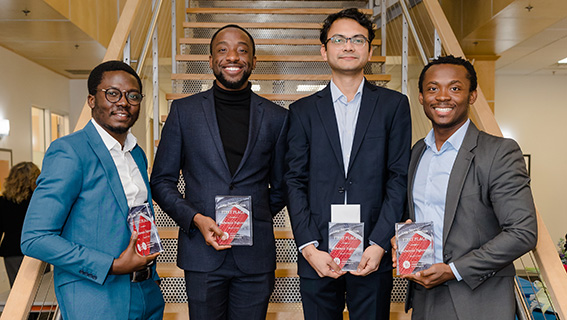Economics and Applied Econometrics (M.S.)

In today’s job market, economists with quantitative skills and experience in empirical research are in high demand. Our economy is increasingly data-driven, requiring workers who are skilled in analyzing and interpreting economic data to make decisions about national and global markets and economic policy.
This program equips you to apply economic analysis to any situation while expanding your opportunities and preparing you to thrive.



*Total cost and time to complete the program varies, depending on curriculum choices, personal schedules and program fees.
Program Highlights
Practical Economics
Econometrics uses economic theory, mathematics and statistical inference to quantify economic phenomena. In other words, this program turns theoretical economic models into useful tools for economic policymaking.
Whether you intend to work in private industry, government or academia, in the United States or abroad, this program provides a balance of diverse applied courses and core microeconomic, macroeconomic and econometric theory.
The M.S. in economics and applied econometrics also offers excellent preparation for students considering further work in a Ph.D. program either at the University of Delaware or elsewhere.
Underpinning this program is a strong emphasis on quantitative skills applicable to the private and public sectors as well as a focus on faculty and student research.
Program Requirements
All students complete courses in microeconomic and macroeconomic theory and econometrics, including at least three of the five graduate econometrics courses offered.
Students also take electives in a wide range of fields, such as development economics, industrial organization, labor economics, financial economics, behavioral economics and household finance.
This degree is ideal for students who have majored in economics as undergraduates and who seek more specialized training in applied econometrics and economic theory.
Courses (30 credits)
ECON 811 – Microeconomic Theory I
ECON 812 – Macroeconomic Theory I
ECON 822 – Econometric Theory I
ECON 823 – Econometric Theory II
Choose one course from:
ECON 824 – Econometrics of Cross-Section and Panel Data
ECON 825 – Time-series Econometrics
Five electives approved by the graduate committee including one Advanced Topics course or ECON 868 – Research Project
STEM Business Program
This STEM-designated business program builds the quantitative, analytical and technical skills employers prioritize today, such as data analysis, AI fundamentals, financial modeling and technological proficiency. STEM occupations are high earning, with a median wage double that of non-STEM fields, and are projected to grow faster than overall employment, according to the U.S. Bureau of Labor Statistics.
Career Opportunities
We have excellent success in placing our graduates in professional positions where employers value their experience and skills. The Lerner Career Services maintains job listings, coordinates job fairs, student recruitment programs, and provides career planning and placement assistance. The economics faculty also provides job interview coaching and guidance.
Where Our Graduates Work
- Bloomberg
- Cigna
- Citi
- JPMorgan Chase
- KPMG
- Sallie Mae
Economics FAQ
A. First, we take a personalized approach to our students. Our program is small enough that each student receives personal attention. As a result, students finish their degrees at a faster rate than is typical elsewhere. Second, we focus on the application of economics to the real world and offer a wide array of econometrics courses designed to train students for jobs that emphasize the practical application of economics. As a result, we have been highly successful in placing our graduates in meaningful jobs that demand such skills. Third, a large number of our funded students teach either economics courses for our department or statistics labs for the Department of Mathematics. As a result, these students gain valuable experience that translates well not only to academia but to the business world, which places a premium on the ability to communicate effectively.
Q. How long does it take to finish the different degrees?
A. The M.S. in economics and applied econometrics is a three-semester degree. Students can take three courses each semester and register for ECON 868 – Research Paper, in any of the three semesters. Students often work on the research project during the summer between the second and third semesters. M.S. students may take a tenth course instead of ECON 868. We advise students to do this during their third semester. Ph.D. students need three years to finish their coursework and an additional two years to complete the dissertation.
Q: What do you mean by “equivalency” ?
A: Although a student cannot use credit earned for another degree to earn a master’s degree in economics at the University of Delaware, some of these credits may reduce the overall number of credits needed to complete the Ph.D. degree. Students without prior graduate work in economics must complete the requirements of our M.S. in economics and applied econometrics (30 credits) in addition to satisfying the requirements for the Ph.D. (29 credits). Students will be awarded both degrees upon completion of the requirements. If you have completed a master’s degree in economics at another comparable university, it is possible that you may only need to complete the remaining 29 credits (including 9-credit thesis) at the University of Delaware. However, since master’s degrees do not always include comparable courses at a comparable level of rigor, the graduate committee must evaluate each student’s record on an individual basis. Students must supply information concerning course content (for example, copies of course syllabi and exams) to support their request for equivalency. You will find copies of our course syllabi at our website.
Q: If I have completed a MBA recently, how many more courses will I have to take to complete the Ph.D.?
A: This depends on exactly what courses you took for your MBA degree. Generally, there is little overlap between coursework for a traditional MBA and a master’s degree in economics. The graduate committee evaluates each student’s record on an individual basis. Students must supply information concerning course content (for example, copies of course syllabi and exams) to support their request for equivalency.
Q: I’m applying for the Ph.D. in economics; I currently hold a MBA degree. You stipulate that I must eventually meet the requirements of the M.S. in economics and applied econometrics in addition to the requirements for the Ph.D. program. Do I submit my application for the M.S. or the Ph.D. program?
A: You can apply directly to the Ph.D. with a MBA degree. You will be required to complete the M.S. equivalency at UD as part of your Ph.D. program (30 credits for the M.S. degree plus the 29 credits for Ph.D.). If you receive equivalency for any coursework taken for the MBA, you will not be able to use those credits for the M.S. degree. However, those credits would reduce the total number of credits needed for the Ph.D. degree. Students who receive equivalency for coursework will receive only a Ph.D. degree.
Q: I have a limited background in economics but, as an undergraduate, I took two semester courses in calculus and statistics. Should I get a M.A. degree prior to switching to the Ph.D. program?
A: You would benefit from a calculus-based Intermediate microeconomics course. You should consider taking the course prior to starting graduate work in economics. If your background in mathematics and statistics is especially strong, you could still succeed in either the M.S. or Ph.D. program. The graduate committee would have to evaluate your record once you have applied and advise you as to which program is the most appropriate. Once at UD, you can change programs at any time as long as the graduate committee approves.
Q: What can I do to increase my chances of being admitted to the M.S. or Ph.D. program?
A: We have found that students do better if they have a stronger background in mathematics. The minimum mathematics requirement is a two-course undergraduate sequence in calculus that includes multivariate calculus (that is, partial differentiation). We offer a self-contained course in mathematics for economists (ECON 810) in the fall semester. Also recommended are courses in linear algebra and differential equations.
Q: What is the minimum requirement (such as TOEFL and GRE scores) if I want to apply for a TA or RA?
A: The minimum TOEFL for admission to the Ph.D. is 600 and the minimum GRE score is 1100 (verbal + quantitative).
Q: Does the University of Delaware treat a 3-year bachelor’s (honors) degree from another country as equivalent to its U.S. counterpart and accept the applicant for direct admission to the graduate program?
A: No, a three-year degree is not acceptable for admission to UD. One more year of post-graduate studies at your University would be acceptable and then you may apply for admission to graduate studies at UD.
Q: I have already received the official letter of admission from the University of Delaware but I was not given financial aid. Do I have any chance of obtaining financial aid?
A: We realize that money is a problem and it is very difficult for you to come without aid. However, we have limited aid awards. It is our experience that it is very difficult for foreign students to cope financially in the United States without the help of a sponsor from outside the University.
Q: When do you make your funding decisions for the fall semester? Can you tell me what my chances are in advance?
A: We do fund a limited number of new students. Funding is highly competitive. We make the funding decisions for the fall semester in either March of April once we have reviewed all of the applicants’ records. The committee looks at all applicants at the same time and uses the criteria listed on our website. Unfortunately, it is not possible to make more specific statements about an individual student’s situation until we see the completed application.
Q: If I do well in my first year, will I be funded during the remaining time that I will need to finish the Ph.D.?
A: While continued funding is based on student performance, Ph.D. students who receive funding after the first year are normally required to teach in the undergraduate program. Funding is highly competitive. We make the funding decisions for the fall semester in either March of April once we have reviewed all of the applicants’ records.
Q: Am I more likely to receive funding if I apply to the Ph.D. program than a master’s program?
A: While we fund a small number of new master’s and Ph.D. students, applying for the master’s or Ph.D. program does not affect the funding or admission decision. Funding beyond the first year is dependent on success in the first year.
Q: I am interested in finance. I see that your College offers a M.S. in finance as well as concentrations in finance as a part of the MBA and Ph.D. in economics. What is the difference among these three degrees?
A: The M.S. in finance is 30-credit degree with courses offered also to MBA and economics graduate students. The MBA finance courses are mostly managerial and institutional in nature, while the courses open to economics students are research-oriented and have a graduate course in econometrics as a prerequisite. The Ph.D. in economics offers a concentration in financial economics in collaboration with the Finance Department. Students interested in the Ph.D. in economics with a concentration in financial economics can earn either a M.S. in finance or a M.S. in economics and applied econometrics while doing coursework for the Ph.D. In either case students can complete all coursework within three years with a fourth year dedicated to completing the dissertation. The website provides the details concerning courses and total number of credits for each degree. Ph.D. students take the same three research courses offered to the M.S. in finance students, and do their thesis in financial economics with faculty advisors from both departments.
News
- My Summer Internship: Anxhela Beluli - Beluli, economics Ph.D. student, spent her summer as an Economist Ph.D. Intern at Amazon.
- Lerner Offers Grad Scholarships, AI Programs for Fall 2025 - The Lerner College now offers new scholarships and AI programs for Fall 2025, creating flexible, future-ready options for UD students, alumni and professionals navigating career or life transitions.
- $71.5 Million Gift to UD Will Transform Lerner College - UD announces largest gift in University's history which will help create Lerner College's Siegfried Hall.
- Teaching Economics Through Taylor Swift - Economics professor Kathryn Bender noticed her students’ interest piqued when a class discussion turned to Swift. So she created a data visualization workshop series based on the pop star.
- Cleaner Milk, Better Profits - In global agriculture, cooperatives are key for many small farmers. UD researcher Manaswini Rao looked into ways to promote positive change in this key area.
Admissions Information
Learn more about master of science in economics and applied econometrics admissions requirements, deadlines, tuition and financial aid available to you.

Lerner STEM Business Degrees
Explore Lerner STEM-designated programs and their career advantages.

Hutchinson Lecture in Economics
The Hutchinson Lecture in Macroeconomics brings distinguished scholars and policy-makers to campus each spring semester.

Carol A. Ammon Case Competition
Graduate student teams present their solutions to current issues faced by the competition’s focal company.



